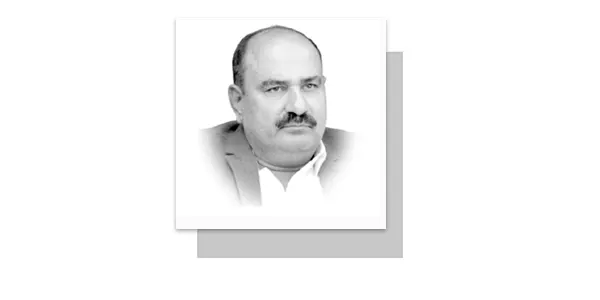THE recent story of Brigadier Imtiaz Ahmed, widely covered in the media, is not an isolated case but a reflection of a larger, pervasive issue, the misuse of power and widespread corruption. Brigadier Imtiaz’s dramatic fall from grace, from a position of immense influence to facing humiliation at the hands of his own family, highlights a crucial lesson about the consequences of corruption.
Once a powerful and respected figure, Brigadier Imtiaz wielded significant influence within the corridors of power. His ability to make and break governments, coupled with his involvement in high-stakes political manoeuvring, made him a formidable force. However, his story, now marked by disgrace and familial betrayal, serves as a sobering reminder that the misuse of power and corruption ultimately lead to downfall.
This tale of Brigadier Imtiaz mirrors the fate of many who engage in corrupt practices. Throughout our institutions, from the highest offices to local bureaucracies, corruption has taken root, leading to countless stories of downfall similar to that of Brigadier Imtiaz. These stories underscore the truth that ill-gotten power and wealth are temporary and ultimately destructive.
The misuse of authority and accumulation of illicit wealth might bring short-term gains, but they often lead to long-term suffering. The betrayal by those closest to you, the loss of respect and dignity, and the ultimate realization of one’s misdeeds come as stark reminders that justice, though delayed, is inevitable. Brigadier Imtiaz, who once commanded respect and fear, found himself abandoned and humiliated by his own children. His elder son sold all his properties and fled abroad, leaving him to live with his second son, who treated him with cruelty. His wife, unable to bear the harsh treatment, passed away, and Brigadier Imtiaz was left to face the consequences of his actions alone.
This pattern is not unique to Brigadier Imtiaz. Many individuals who have engaged in corrupt practices face similar fates. The betrayal and abandonment by loved ones, the public disgrace, and the eventual realization of their wrongdoings are common themes in the lives of those who misuse power. These stories serve as powerful reminders that justice, though it may be delayed, is inevitable.
It is a blessing from Allah Almighty that many face their retribution in this life, sparing them from the far harsher punishment of the hereafter. This earthly punishment serves as a warning and an opportunity for repentance and reflection. It reminds us that the path of righteousness and integrity is the only way to achieve true peace and respect, both in this world and beyond.
The widespread corruption within our institutions highlights a systemic issue that needs to be addressed. From the highest echelons of power to the local bureaucracies, the misuse of authority and accumulation of illicit wealth have become rampant. This pervasive corruption undermines the foundations of our society and erodes public trust in our institutions. It is imperative that we take collective action to combat corruption and promote transparency and accountability.
As we reflect on these stories, let us commit to fighting corruption in all its forms. We must strive for transparency, accountability, and justice within our institutions. By doing so, we can build a society where power is used responsibly, and integrity is valued above all else. This is the legacy we should aim to leave for future generations, ensuring a just and prosperous society for all.
Addressing corruption requires a multi-faceted approach. It involves not only enforcing strict laws and regulations but also fostering a culture of integrity and ethical behaviour. Education and awareness campaigns can play a crucial role in changing societal attitudes towards corruption. Moreover, empowering whistleblowers and protecting them from retaliation is essential in uncovering corrupt practices and holding individuals accountable.
—The writer is former Regional Executive Inclusive Development at NBP, Mirpur AK.










